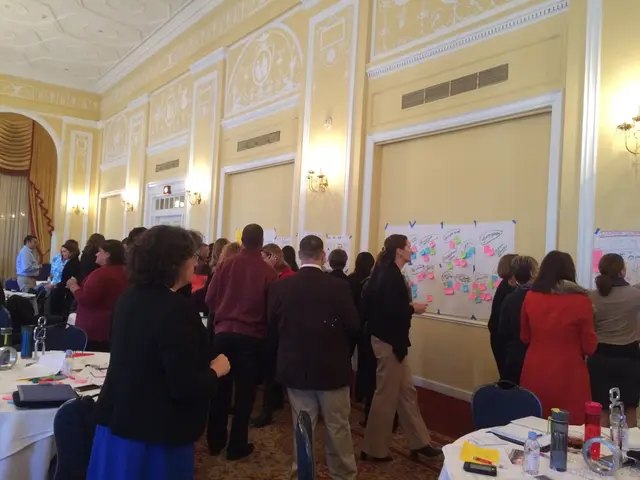Aviation's Journey Towards Gender Equality: A Look at Advancements, Obstacles, and Insights
In the realm of equal opportunities, the aviation sector is working tirelessly to shake off its historical male-dominated status and create a more balanced landscape. Over the last decade, development in the aviation world has seen an uptick in the number of women embracing careers as pilots, air traffic controllers, aerospace engineers, and beyond. This evolution is partly due to campaigns, scholarships, and mentorship programs, enticing women to partake in this once mostly male-centric field.
At the heart of this change, aviation authorities and industry leaders are at the forefront, championing gender equality through leadership and mentorship programs. By equipping women with the necessary support and opportunities, they strive to nurture a pipeline of female leaders, establish a culture of inclusivity, and, ultimately, inspire future generations.
While trailblazers like Amelia Earhart have captured headlines, there's a host of present-day champions who continue to shatter boundaries. Yvonne Makolo, CEO of Rwandair, serves as an outstanding example, leading the charge as the first woman to chair the International Air Transport Association (IATA). There's a long list of impressive women currently at the helm, reshaping the face of aviation.
Nevertheless, strides forward have not erased the remaining barriers. Stereotypes and outdated biases persist in the industry, persistently questioning women's capabilities to excel in certain roles, such as piloting large commercial aircraft. Uprooting these obstacles calls for concerted action from stakeholders, including educational institutions, aviation companies, and regulatory bodies.
The demanding nature of aviation careers can also pose challenges for women, particularly for those seeking to raise families. As mothers balance career demands, family life, and childcare responsibilities, their path to advancement may face unexpected hurdles. Alleviating these issues and supporting work-life balance is crucial to retain female talent and attract newcomers to the field.
As the United Nations' aviation arm, the International Civil Aviation Organization (ICAO) publishes numerous reports on gender equality in aviation. One of their groundbreaking reports offers an extensive analysis of the current state of gender equality within the industry and provides recommendations for fostering equal opportunities. Similarly, the IATA, representing the world's airlines, delivers insights on the rate of women's advancement and identifies areas for continued improvement. Another essential resource is Women in Aviation International (WAI), an advocacy group established to advance women in the aviation sector, providing a platform for success stories, research, and initiatives that promote gender equality.
As we embark on the journey towards gender equality, it's essential to acknowledge that we are only at the beginning. Persistent challenges must be confronted, and incremental advances made, to ensure equal opportunities for women in all areas of the aviation industry. The reports offered by these organizations provide valuable insights and guidance, illuminating the path toward a more inclusive and balanced aviation landscape.
References:
- ICAO - Gender Equality in Civil Aviation Report
- IATA - Women in Aviation - Industry Outlook 2023
- WAI - Women in Aviation International Annual Report
- 5
- 3
- 2
- Aviation authorities and industry leaders are actively advocating for gender equality, establishing leadership and mentorship programs to foster a pipeline of female leaders and promote workplace inclusion.
- Trailblazers like Yvonne Makolo, the CEO of Rwandair, continue to break barriers, exemplifying the many women spearheading change in the aviation sector and reshaping its traditional image.
- Stereotypes and outdated biases still persist in the aviation industry, hindering women's progress, especially in roles such as piloting large commercial aircraft.
- To combat these obstacles, collaborative action from educational institutions, aviation companies, and regulatory bodies is crucial, ensuring a supportive environment for women and maintaining a focus on work-life balance.
- Reports published by organizations like the International Civil Aviation Organization (ICAO), International Air Transport Association (IATA), and Women in Aviation International (WAI) provide valuable insights and recommendations, guiding the journey towards a more equitable aviation landscape.
- The path towards gender equality in aviation is a continuous process, requiring persistent effort to overcome challenges and make incremental advances.
- In the realm of personal growth and career development, educational resources and advocacy groups focusing on women's health, science, business, finance, health-and-wellness, lifestyle, fashion-and-beauty, and education-and-self-development play a vital role in empowering women to excel in various industries, including aviation.







